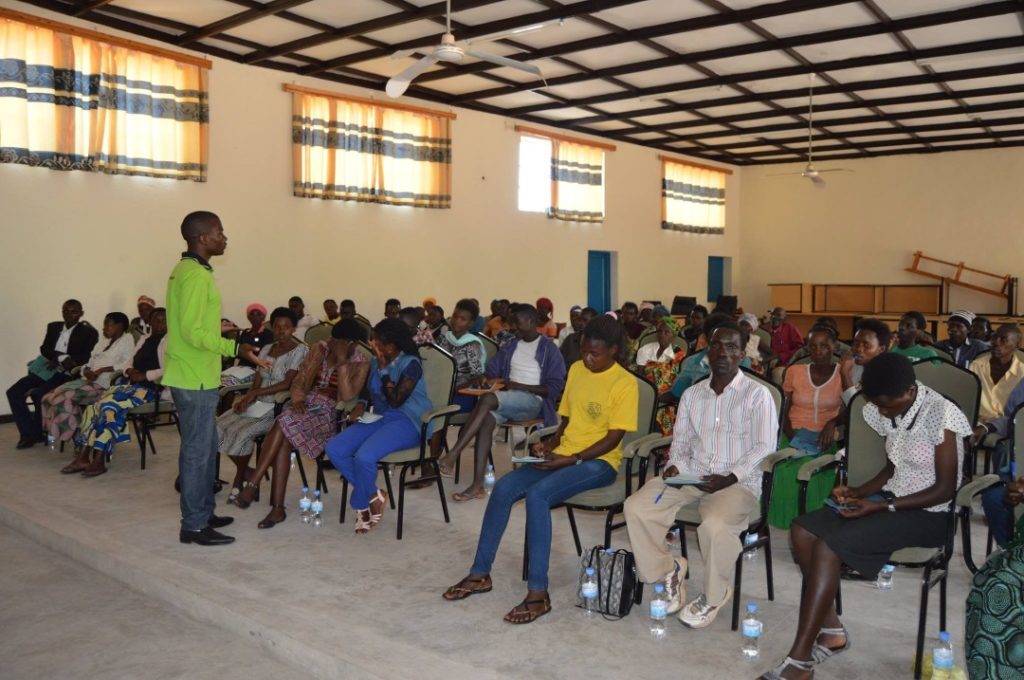Health Development Programme

Sexual and reproductive health and rights
Our definition of sexual and reproductive health and rights (SRHR) follows the clearly defined components in the 1994 International Conference on Population and Development, namely: Voluntary, informed, and affordable family planning services; Pre-natal care, safe motherhood services, assisted childbirth from a trained attendant (e.g., a physician or midwife), and comprehensive infant health care; Prevention and treatment of sexually transmitted infections (STIs), including HIV and AIDS and cervical cancer; Prevention and treatment of violence against women and girls, including torture; Safe and accessible post-abortion care and, where legal, access to safe abortion services; and Sexual health information, education, and counseling, to enhance personal relationships and quality of life.
Furthermore, we recognize the SRHR of men as well as women, and the SRHR of LGBTI persons, FSWs and MSWs. While inclusion is a cross-cutting issue throughout our work, we particularly recognize the unrealized SRHR of people with disabilities in South Sudan and we therefore also strive to define programs to meet their needs. We recognize the need to build skills and capacity on SRHR on multiple levels, including amongst policy-makers, other civil society organizations, individuals and the community at large, as well as amongst medical practitioners. Therefore, to deliver our work under this thematic area, we employ a multi-pronged approach:
- Expand access to and uptake of SRHR information and services through intensified behavior-change communication, CSE for adolescents, awareness raising and service delivery;
- Advocate for the implementation of existing SRHR policies and the introduction of SRHR-friendly policies for women and young people;
- Deliver trainings and mentorship to graduates, as well as other technical staff in the civil society and public sectors for improved delivery of SRHR information and services; and
- Conduct action-oriented research to inform programmatic decisions.
Community Health and Development:
Within community health, we focus on child nutrition, WASH and mental health. Working within a holistic approach, we bridge our work on improving maternal health with improving child nutrition, given the strong interlinkages between the two areas. We also see overlapping areas with WASH and overall empowerment of communities, so we look into innovative ways to promoting access to improved WASH in order to improve child nutrition. Our WASH programming requires a renewed approach as our research has shown that knowledge-dissemination interventions alone will not have the desired effect in improving WASH at a household level. Therefore, we look to develop partnerships that improve access to facilities in conjunction with awareness-raising work.
Mental health is a new intervention area for AHI. Here, we seek to advocate for the implementation of the integration of mental health as part of primary healthcare, as well as advocating for the prioritization of mental health within the South Sudanese Ministry of Health. We also see a gap in knowledge and understanding of mental health and symptom recognition, and we therefore promote community-based interventions to fill this gap. In summary, our community health portfolios include:
- Employing a holistic approach in disseminating information and services on child nutrition to improve mother and child health;
- Addressing the intersection between WASH and nutrition through improved information-dissemination and behavior change communication interventions at the community level;
- Advocating for increased equitable mental health services;
- Providing our technical expertise in improving community health to service providers and policy-makers; and Sharing our research to foster learning and best practices.
Advocacy and Accountability
Positive and sustainable change comes from ensuring that rights holders are able to claim their human rights and that duty bearers fulfill their responsibilities in upholding those rights. AHI works with policy and lawmakers, civil society organizations, and communities to advocate for positive policy changes. This requires strong partnerships with like-minded individuals and organizations to ensure a united message.
AHI has received technical and financial support to bolster its ability to implement human rights-based approaches. This includes the organization’s capacity to conduct rights advocacy, empower citizens to claim their rights, and strengthen the capacities of government institutions to meet their human rights obligations. AHI’s mission and vision are grounded in the “Right to Health” and the human rights principles of equality, non-discrimination, and empowerment. The rights based approach allows AHI to address the root causes of ill-health, disease, and poverty, while strengthening the foundations for sustainable development. AHI has done extensive health rights education and is working to sensitize civil society organizations and government partners about their role in supporting and protecting human rights.
